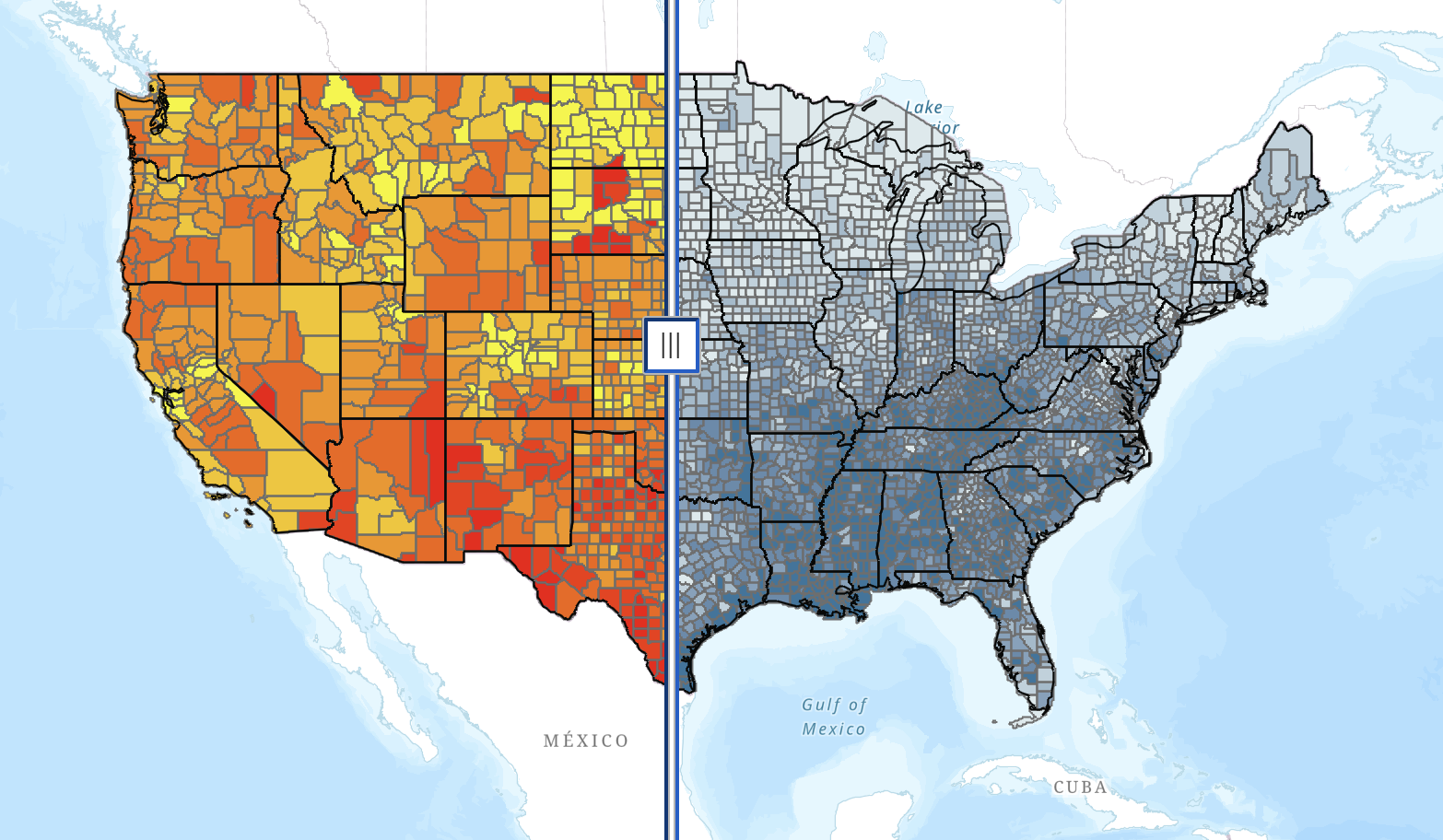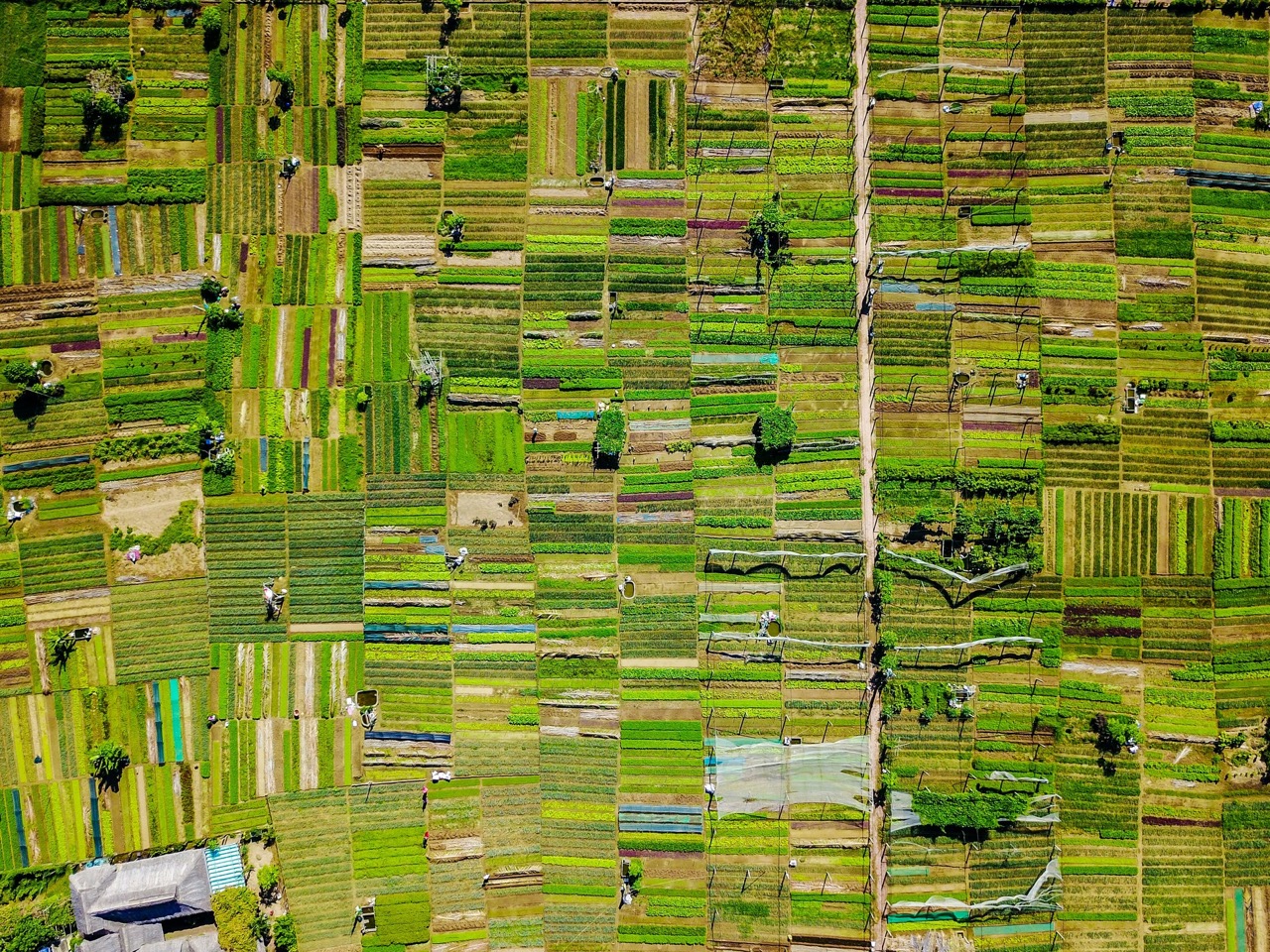On Thursday, The Farmlink Project moved produce in Massachusetts for the first time, facilitating a delivery of 10,450 pounds of mixed greens from Plainville Farms in Hadley to four food bank locations across the state: Food Link in Waltham and Medford, Mystic Community Market in Medford, and Bread & Roses in Lawrence.
Plainville Farms did not grow the salad greens in this delivery, but rather saved them. The owner of Plainville Farms, Wally Czajkwoski, saw perfectly good produce dumped at his local food waste facility and wanted to help redirect it to feed those in need. Thanks to Wally, twenty-two pallets of these greens were rerouted from the dump to be stored at his farm until he could get them to the food banks that needed it. Here is where The Farmlink Project came in—connecting Wally with food banks that could take the produce and coordinating the deliveries.

Julie Kremer and DeAnne Dupont founded Food Link, a Boston-based nonprofit organization, eight years ago when Julie saw the problem of food waste first-hand while volunteering at a fundraiser for her daughter’s school. She went to pick up the leftover bread from Panera that the school had reserved for the fundraiser, and the amount of unused bread astonished her. When she asked the Panera employee where it usually went, they told her that they “dump it at the end of the day.” Learning this inspired her to start Food Link. What began with a simple bread donation has now flourished into a thousand-pound delivery service to food banks and distributors throughout the Greater Boston area.

Before COVID-19, Food Link collected and distributed about 45,000 pounds of produce a month. Since the pandemic, they have taken in an additional 225,000 pounds. At first, with this dramatic increase in produce contributions and their permanent food storage location under renovation until the fall, Food Link was overwhelmed. “One day, fifteen boxes of bananas showed up on our doorstep,” Emma Lowenstein, a recent graduate from Simmons University with a degree in public health and current full-time employee at Food Link told us. However, Food Link operates with a mantra of never turning food away. “People need our help,” Emma said. “We try not to say no. We feel that it is important we have been asked.” Until their permanent location is finished, Food Link relies on the generosity of other organizations and businesses as well as their own volunteers to support this escalated demand. Food Link volunteers act as networks throughout the Boston community, spreading the word of excess food and even lending their cars and having their children help out at food drives. Organizations such as Boston Area Gleaners and Tufts University lent their refrigeration space to Food Link. Julie expressed her deepest gratitude to them, acknowledging that “without that walk-in freezer space and without the inside cooler space, we couldn’t do what we’re doing.” Emma describes her passion for fighting against food insecurity, “food is such a staple. No matter who you are, everyone needs food, and everyone deserves food.”


Like The Farmlink Project, both Wally and Julie saw the problem of food going to waste and decided to do what they could to become part of the solution. From the farm to the food banks and the link in between, as Julie said, “We are all working from a different direction to accomplish the same thing.”
< Back
On Thursday, The Farmlink Project moved produce in Massachusetts for the first time, facilitating a delivery of 10,450 pounds of mixed greens from Plainville Farms in Hadley to four food bank locations across the state: Food Link in Waltham and Medford, Mystic Community Market in Medford, and Bread & Roses in Lawrence.
Plainville Farms did not grow the salad greens in this delivery, but rather saved them. The owner of Plainville Farms, Wally Czajkwoski, saw perfectly good produce dumped at his local food waste facility and wanted to help redirect it to feed those in need. Thanks to Wally, twenty-two pallets of these greens were rerouted from the dump to be stored at his farm until he could get them to the food banks that needed it. Here is where The Farmlink Project came in—connecting Wally with food banks that could take the produce and coordinating the deliveries.

Julie Kremer and DeAnne Dupont founded Food Link, a Boston-based nonprofit organization, eight years ago when Julie saw the problem of food waste first-hand while volunteering at a fundraiser for her daughter’s school. She went to pick up the leftover bread from Panera that the school had reserved for the fundraiser, and the amount of unused bread astonished her. When she asked the Panera employee where it usually went, they told her that they “dump it at the end of the day.” Learning this inspired her to start Food Link. What began with a simple bread donation has now flourished into a thousand-pound delivery service to food banks and distributors throughout the Greater Boston area.

Before COVID-19, Food Link collected and distributed about 45,000 pounds of produce a month. Since the pandemic, they have taken in an additional 225,000 pounds. At first, with this dramatic increase in produce contributions and their permanent food storage location under renovation until the fall, Food Link was overwhelmed. “One day, fifteen boxes of bananas showed up on our doorstep,” Emma Lowenstein, a recent graduate from Simmons University with a degree in public health and current full-time employee at Food Link told us. However, Food Link operates with a mantra of never turning food away. “People need our help,” Emma said. “We try not to say no. We feel that it is important we have been asked.” Until their permanent location is finished, Food Link relies on the generosity of other organizations and businesses as well as their own volunteers to support this escalated demand. Food Link volunteers act as networks throughout the Boston community, spreading the word of excess food and even lending their cars and having their children help out at food drives. Organizations such as Boston Area Gleaners and Tufts University lent their refrigeration space to Food Link. Julie expressed her deepest gratitude to them, acknowledging that “without that walk-in freezer space and without the inside cooler space, we couldn’t do what we’re doing.” Emma describes her passion for fighting against food insecurity, “food is such a staple. No matter who you are, everyone needs food, and everyone deserves food.”


Like The Farmlink Project, both Wally and Julie saw the problem of food going to waste and decided to do what they could to become part of the solution. From the farm to the food banks and the link in between, as Julie said, “We are all working from a different direction to accomplish the same thing.”
Food Link
Massachusetts
On Thursday, The Farmlink Project moved produce in Massachusetts for the first time, facilitating a delivery of 10,450 pounds of mixed greens from Plainville Farms in Hadley to four food bank locations across the state: Food Link in Waltham and Medford, Mystic Community Market in Medford, and Bread & Roses in Lawrence.
Plainville Farms did not grow the salad greens in this delivery, but rather saved them. The owner of Plainville Farms, Wally Czajkwoski, saw perfectly good produce dumped at his local food waste facility and wanted to help redirect it to feed those in need. Thanks to Wally, twenty-two pallets of these greens were rerouted from the dump to be stored at his farm until he could get them to the food banks that needed it. Here is where The Farmlink Project came in—connecting Wally with food banks that could take the produce and coordinating the deliveries.

Julie Kremer and DeAnne Dupont founded Food Link, a Boston-based nonprofit organization, eight years ago when Julie saw the problem of food waste first-hand while volunteering at a fundraiser for her daughter’s school. She went to pick up the leftover bread from Panera that the school had reserved for the fundraiser, and the amount of unused bread astonished her. When she asked the Panera employee where it usually went, they told her that they “dump it at the end of the day.” Learning this inspired her to start Food Link. What began with a simple bread donation has now flourished into a thousand-pound delivery service to food banks and distributors throughout the Greater Boston area.

Before COVID-19, Food Link collected and distributed about 45,000 pounds of produce a month. Since the pandemic, they have taken in an additional 225,000 pounds. At first, with this dramatic increase in produce contributions and their permanent food storage location under renovation until the fall, Food Link was overwhelmed. “One day, fifteen boxes of bananas showed up on our doorstep,” Emma Lowenstein, a recent graduate from Simmons University with a degree in public health and current full-time employee at Food Link told us. However, Food Link operates with a mantra of never turning food away. “People need our help,” Emma said. “We try not to say no. We feel that it is important we have been asked.” Until their permanent location is finished, Food Link relies on the generosity of other organizations and businesses as well as their own volunteers to support this escalated demand. Food Link volunteers act as networks throughout the Boston community, spreading the word of excess food and even lending their cars and having their children help out at food drives. Organizations such as Boston Area Gleaners and Tufts University lent their refrigeration space to Food Link. Julie expressed her deepest gratitude to them, acknowledging that “without that walk-in freezer space and without the inside cooler space, we couldn’t do what we’re doing.” Emma describes her passion for fighting against food insecurity, “food is such a staple. No matter who you are, everyone needs food, and everyone deserves food.”


Like The Farmlink Project, both Wally and Julie saw the problem of food going to waste and decided to do what they could to become part of the solution. From the farm to the food banks and the link in between, as Julie said, “We are all working from a different direction to accomplish the same thing.”
.png)






%202.jpg)
.svg)
.svg)
.svg)